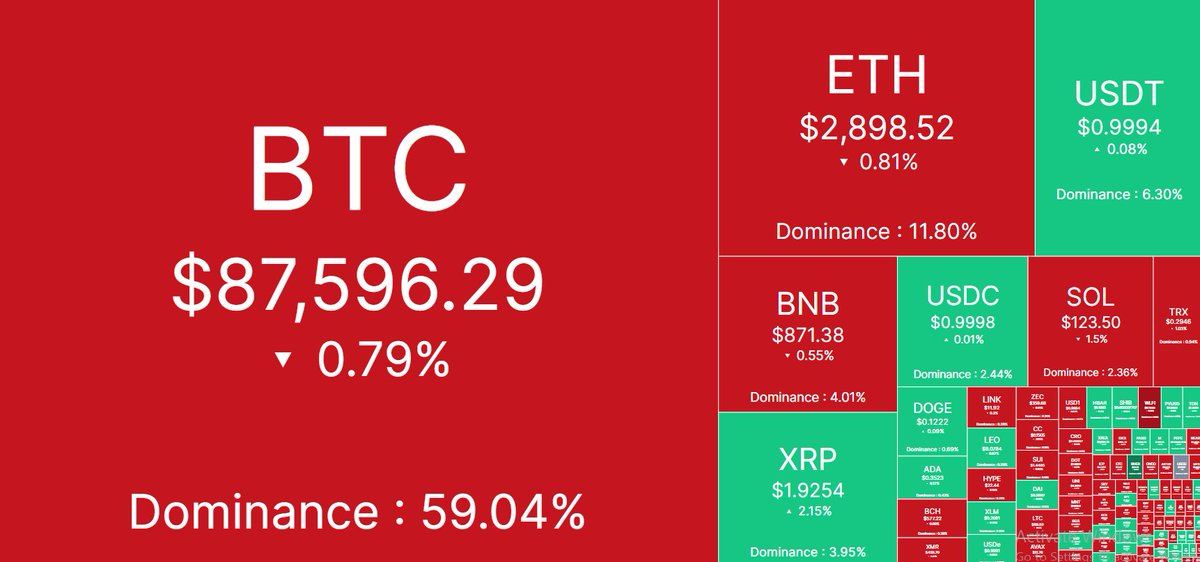Topic Background

TheCryptoBasic
Crypto Newbie
12h ago
🌐 Daily Cryptocurrency Price Update 🌐
Bitcoin (BTC): $77,950.33
Ethereum (ETH): $2,299.12
Binance Coin (BNB): $776.20
Ripple (XRP): $1.6141
Solarana (SOL): $102.11
Tron (TRX): $0.2831
Dogecoin (DOGE): $0.1098
Cardano (ADA): $0.3033
Bitcoin Cash (BCH): $531.41
Hyperliquid (HYPE): $33.94
Shiba Inu Coin (SHIB): $0.000007000
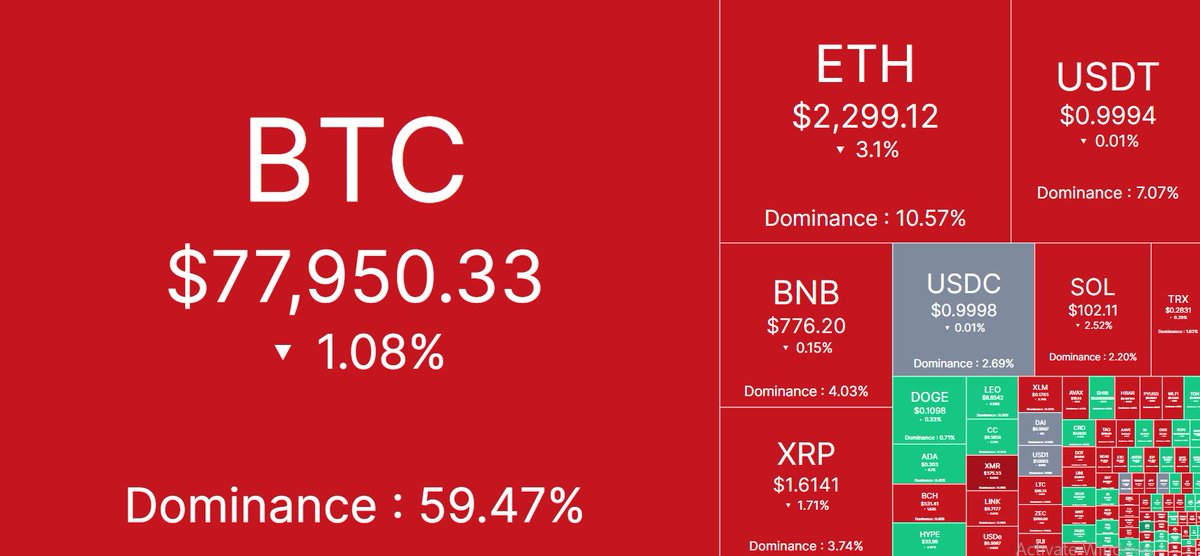

TheCryptoBasic
Crypto Newbie
1d ago
🌐 Daily Cryptocurrency Price Update 🌐
Bitcoin (BTC): $78,352.13
Ethereum (ETH): $2,326.17
Binance Coin (BNB): $775.36
Ripple (XRP): $1.6111
Solarana (SOL): $103.87
Tron (TRX): $0.2829
Dogecoin (DOGE): $0.1071
Hyperliquid (HYPE): $37.04
Cardano (ADA): $0.2992
Bitcoin Cash (BCH): $528.22
Shiba Inu Coin (SHIB): $0.000006846
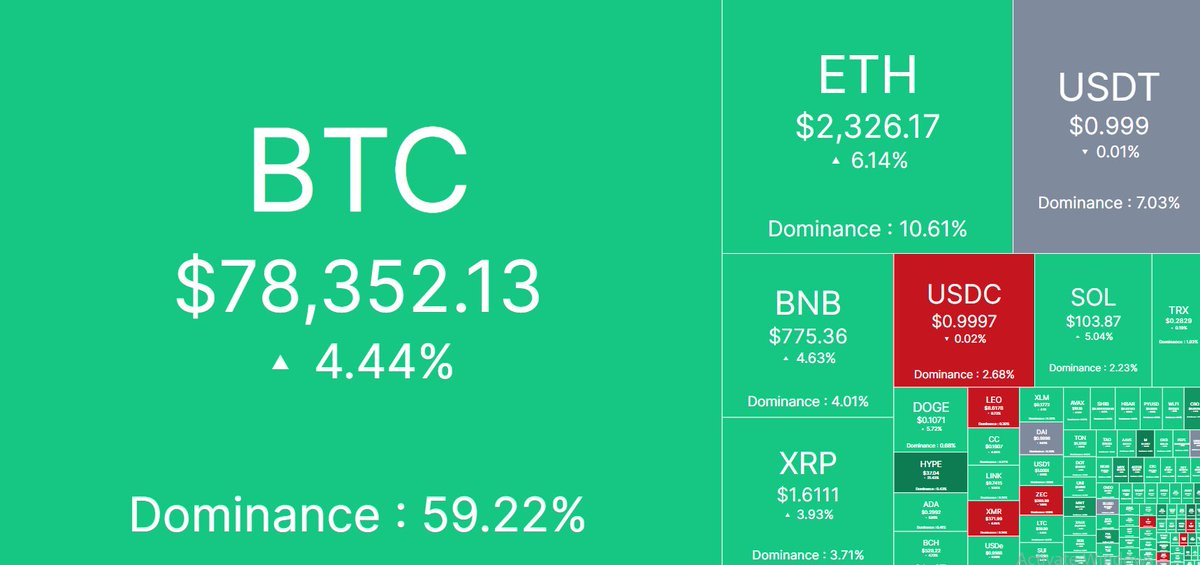

TheCryptoBasic
Crypto Newbie
1d ago
🌐 Daily Cryptocurrency Price Update 🌐
Bitcoin (BTC): $78,779.93
Ethereum (ETH): $2,370.85
Binance Coin (BNB): $777.78
Ripple (XRP): $1.6435
Solarana (SOL): $104.97
Tron (TRX): $0.2839
Dogecoin (DOGE): $0.1095
Cardano (ADA): $0.3011
Bitcoin Cash (BCH): $540.19
Hyperliquid (HYPE): $32.37
Shiba Inu Coin (SHIB): $0.000006976
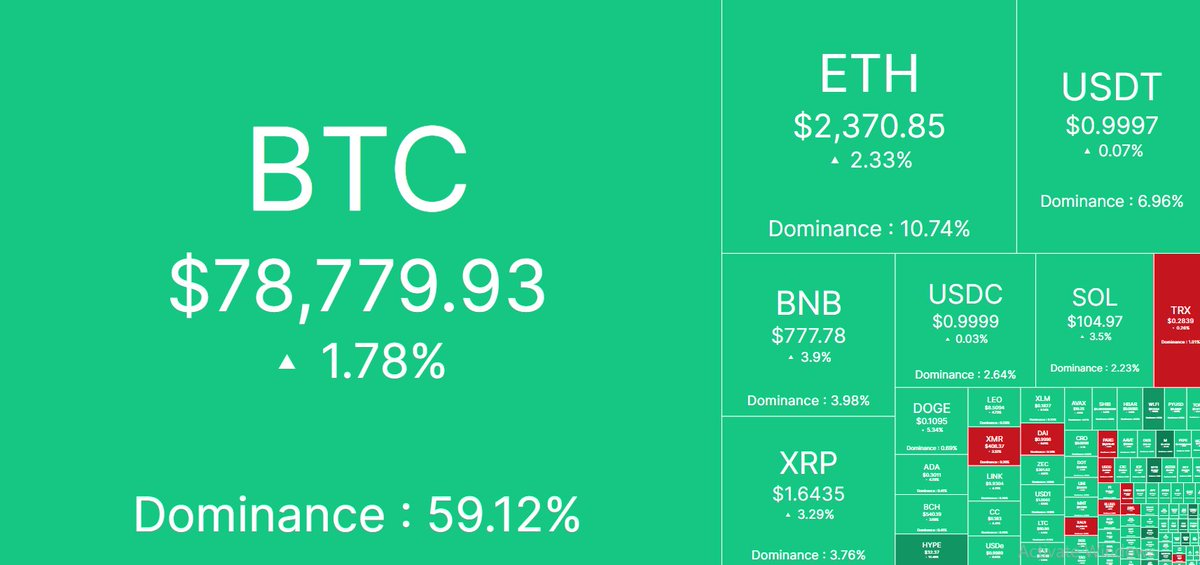

TheCryptoBasic
Crypto Newbie
01-31 10:38
🌐 Daily Cryptocurrency Price Update 🌐
Bitcoin (BTC): $82,975.47
Ethereum (ETH): $2,730.45
Binance Coin (BNB): $849.28
Ripple (XRP): $1.7661
Solarana (SOL): $116.62
Tron (TRX): $0.2912
Dogecoin (DOGE): $0.1158
Cardano (ADA): $0.3253
Bitcoin Cash (BCH): $550.53
Hyperliquid (HYPE): $28.64
Shiba Inu Coin (SHIB): $0.000007279
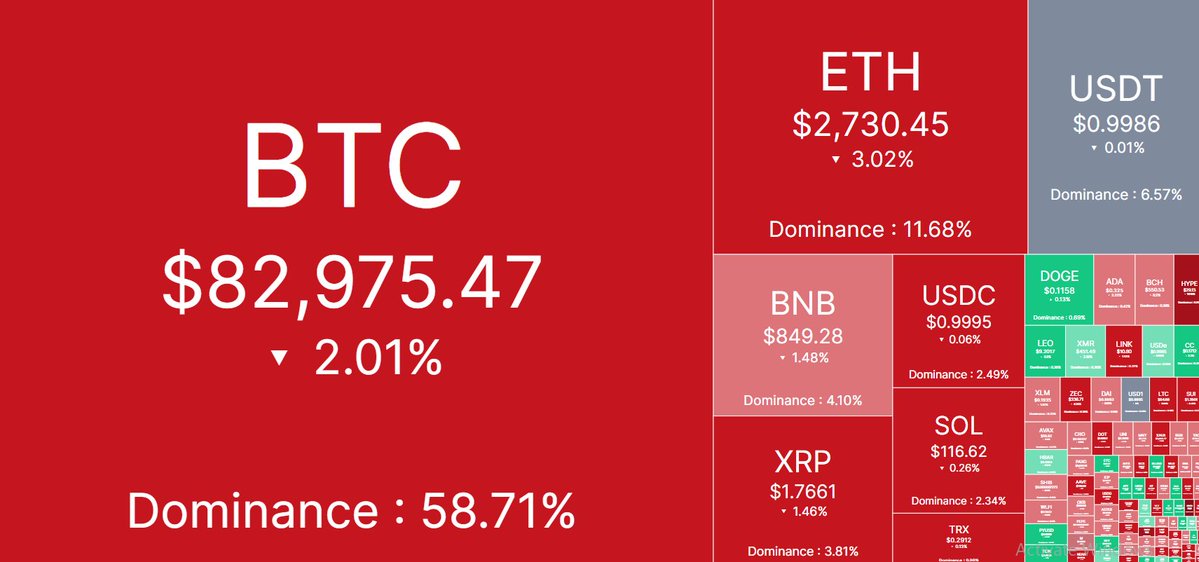

TheCryptoBasic
Crypto Newbie
01-30 04:30
🌐Daily Cryptocurrency Price Update🌐
Bitcoin (BTC): $84,575.83
Ethereum (ETH): $2,806.87
Binance Coin (BNB): $857.79
Ripple (XRP): $1.7899
Solarana (SOL): $116.53
Tron (TRX): $0.2919
Dogecoin (DOGE): $0.1154
Cardano (ADA): $0.3305
Bitcoin Cash (BCH): $552.30
Hyperliquid (HYPE): $33.09
Shiba Inu Coin (SHIB): $0.000007293
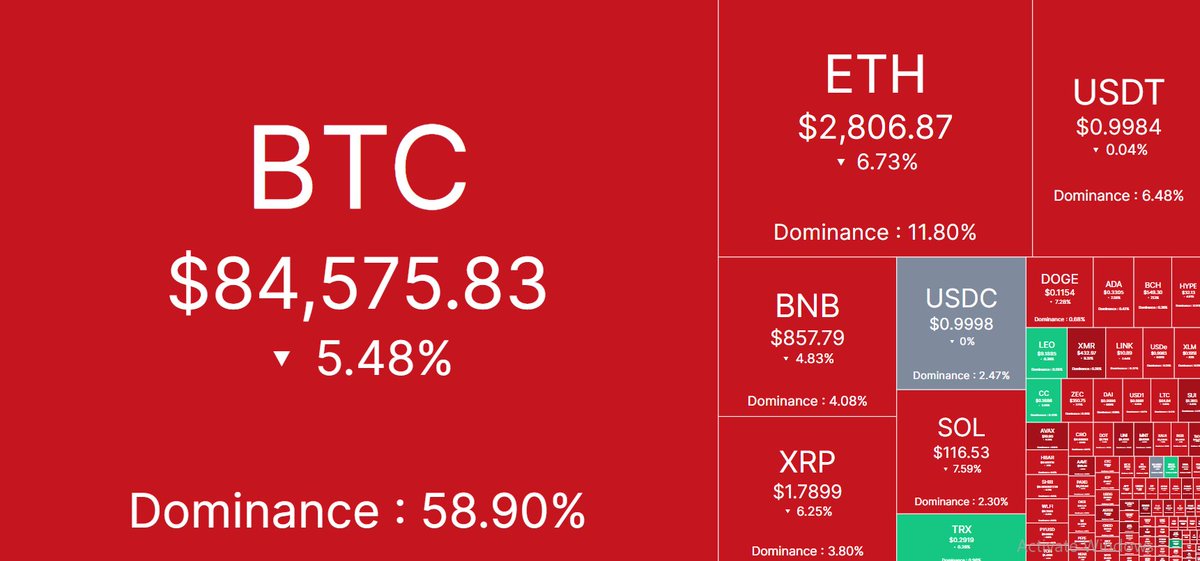

TheCryptoBasic
Crypto Newbie
01-29 13:36
🌐Daily Cryptocurrency Price Update🌐
Bitcoin (BTC): $88,076.48
Ethereum (ETH): $2,953.29
Binance Coin (BNB): $897.65
Ripple (XRP): $1.8793
Solarana (SOL): $123.49
Tron (TRX): $0.2945
Dogecoin (DOGE): $0.1219
Cardano (ADA): $0.3499
Bitcoin Cash (BCH): $585.52
Hyperliquid (HYPE): $31.82
Shiba Inu Coin (SHIB): $0.000007601
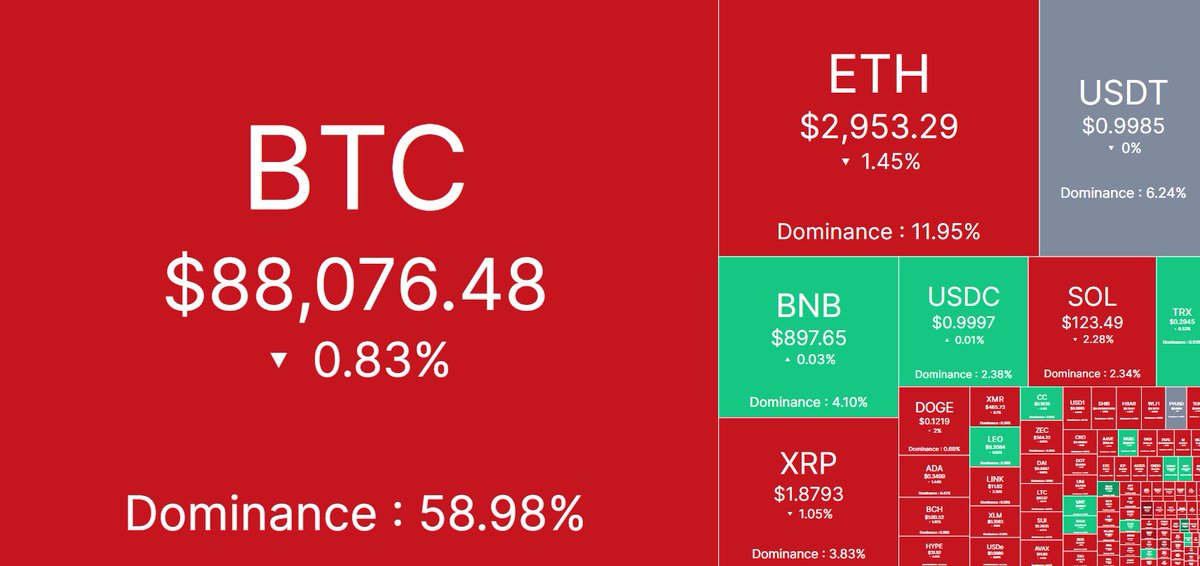

TheCryptoBasic
Crypto Newbie
01-29 00:30
🌐 Daily Cryptocurrency Price Update 🌐
Bitcoin (BTC): $89,382.13
Ethereum (ETH): $3,004.16
Binance Coin (BNB): $901.90
Ripple (XRP): $1.9058
Solarana (SOL): $125.94
Tron (TRX): $0.2910
Dogecoin (DOGE): $0.1245
Cardano (ADA): $0.3557
Bitcoin Cash (BCH): $591.43
Hyperliquid (HYPE): $33.41
Shiba Inu Coin (SHIB): $0.000007731
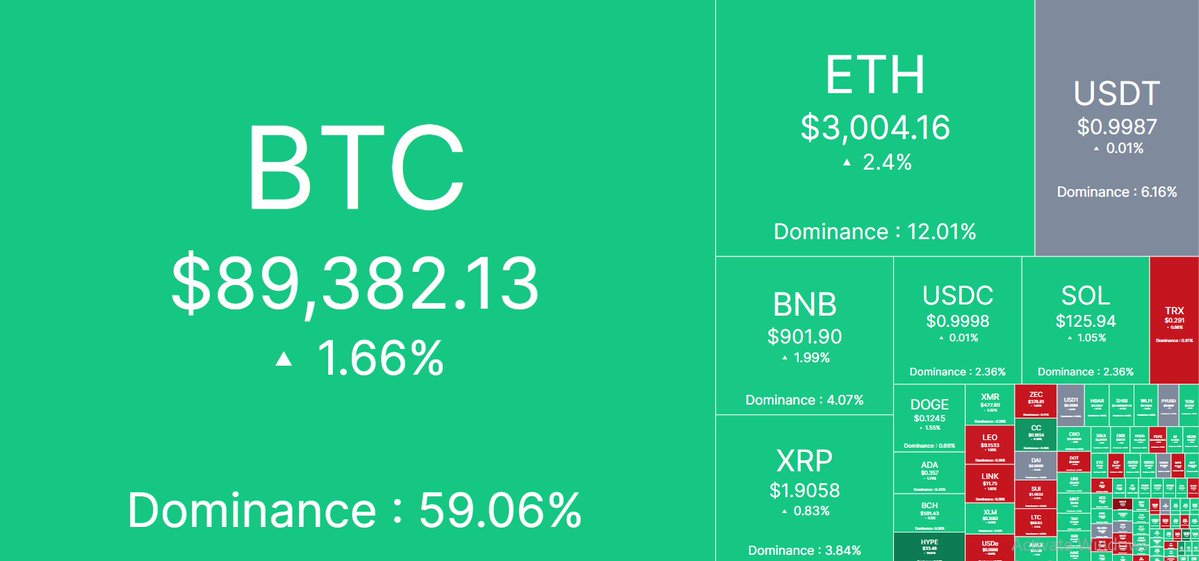

TheCryptoBasic
Crypto Newbie
01-28 07:08
🌐Daily Cryptocurrency Price Update🌐
Bitcoin (BTC): $87,841.55
Ethereum (ETH): $2,933.02
Binance Coin (BNB): $883.37
Ripple (XRP): $1.8873
Solarana (SOL): $124.39
Tron (TRX): $0.2933
Dogecoin (DOGE): $0.1224
Cardano (ADA): $0.3503
Bitcoin Cash (BCH): $588.22
Monero (XMR): $468.29
Shiba Inu Coin (SHIB): $0.000007686
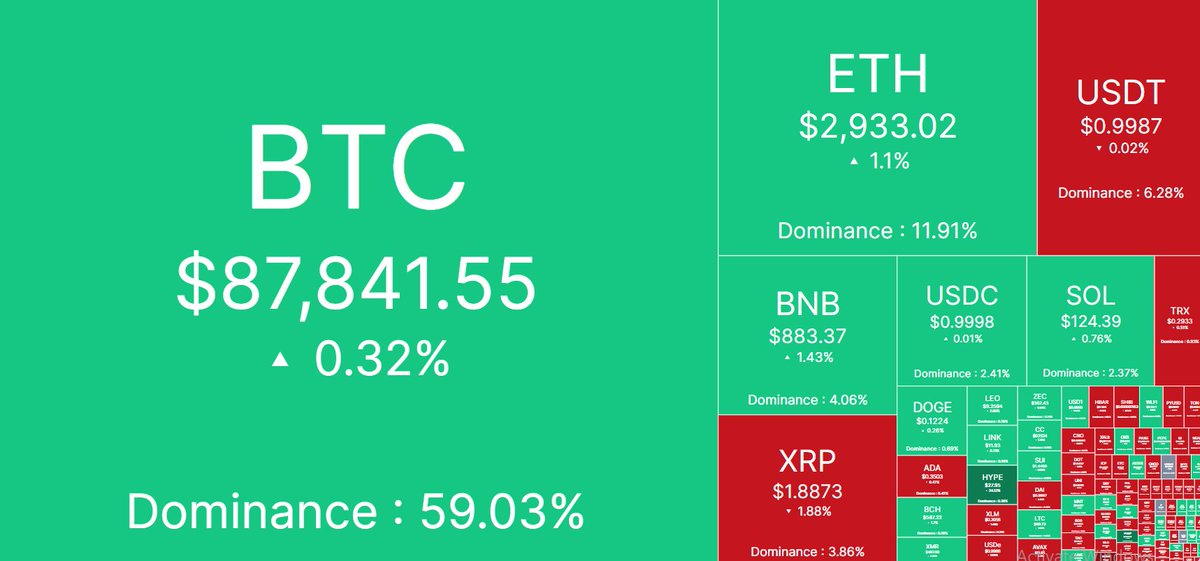

TheCryptoBasic
Crypto Newbie
01-27 13:34
🌐 Daily Cryptocurrency Price Update 🌐
Bitcoin (BTC): $88,393.21
Ethereum (ETH): $2,933.36
Binance Coin (BNB): $882.83
Ripple (XRP): $1.9003
Solarana (SOL): $124.11
Tron (TRX): $0.2954
Dogecoin (DOGE): $0.1226
Cardano (ADA): $0.3516
Bitcoin Cash (BCH): $588.86
Monero (XMR): $464.88
Shiba Inu Coin (SHIB): $0.000007701
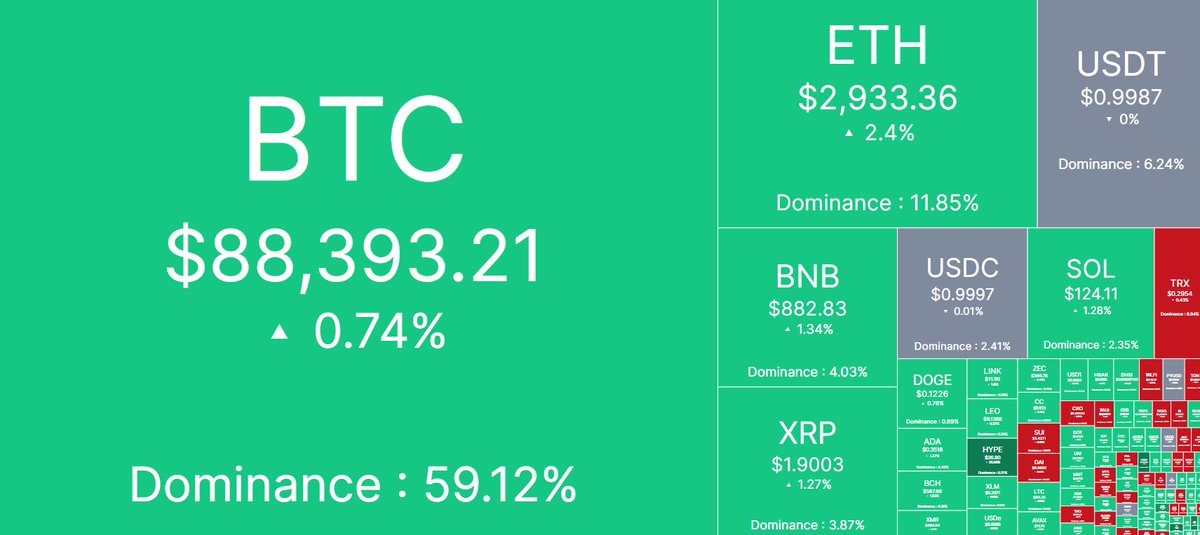

TheCryptoBasic
Crypto Newbie
01-27 00:51
🌐Daily Cryptocurrency Price Update🌐
Bitcoin (BTC): $87,596.29
Ethereum (ETH): $2,898.52
Binance Coin (BNB): $871.38
Ripple (XRP): $1.9254
Solarana (SOL): $123.50
Tron (TRX): $0.2946
Dogecoin (DOGE): $0.1222
Cardano (ADA): $0.3523
Bitcoin Cash (BCH): $576.22
Monero (XMR): $460.14
Shiba Inu Coin (SHIB): $0.000007724
